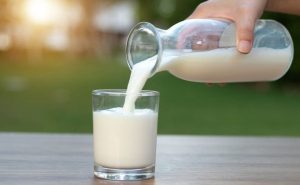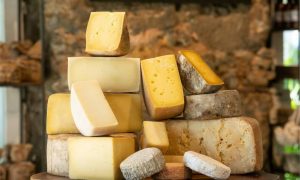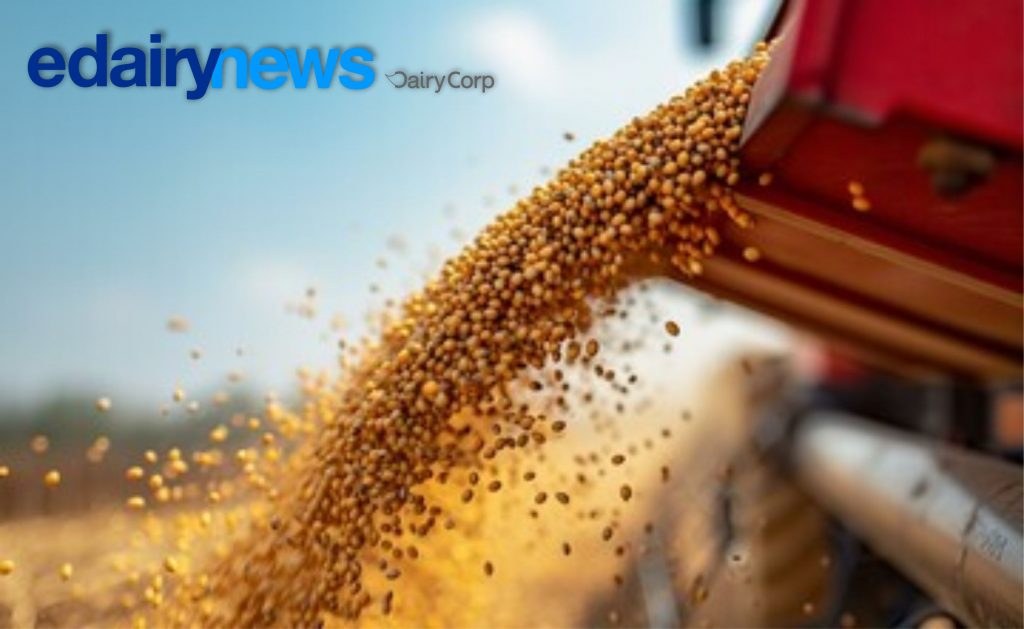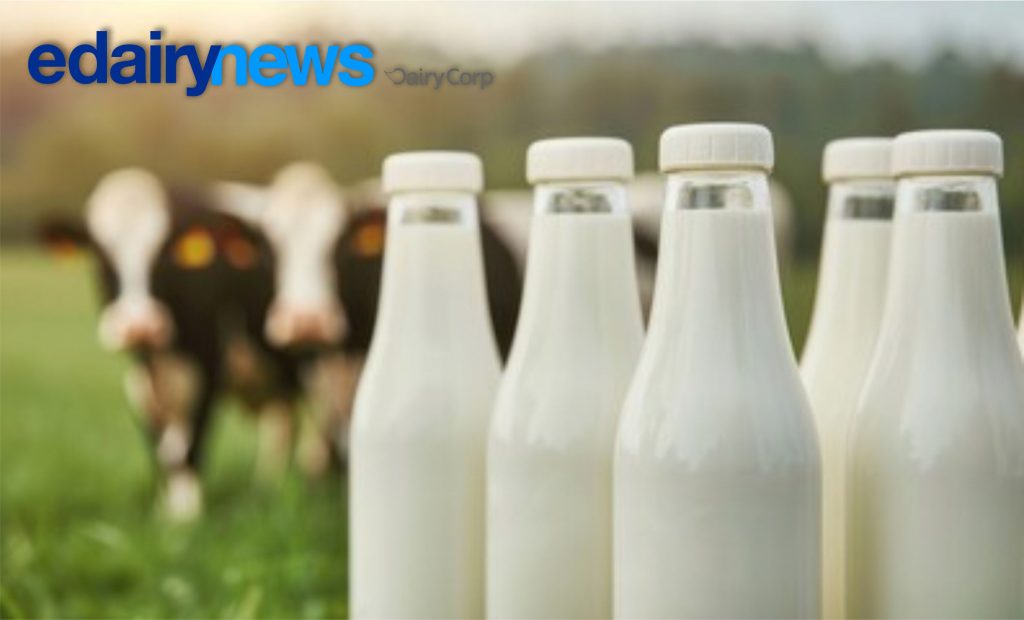Panelists included Randy Romanski, Secretary-designee of the Department of Agriculture, Trade and Consumer Protection; Jim Mulhern, president and CEO of the National Milk Producers Federation; Jeff Schwager, CEO of Sartori Cheese Company; Chad Vincent, CEO of Dairy Farmers of Wisconsin; and Jeff Lyon, CEO of FarmFirst Dairy Cooperative.
Tom Vilsack, president and CEO of the US Dairy Export Council, and Pam Jahnke, of the Midwest Farm Report, moderated the panel. Joe Bragger, president of the Wisconsin Farm Bureau Federation, and Rebekah Sweeney, policy director of the Wisconsin Cheese Makers Association, also made appearances.
The panel discussed the shortcomings of the country’s trade agreements overseas as the United States-Mexico-Canada Agreement (USMCA) became official on July 1. Some of the panelists worried that the trade agreement would not be enforced by the Trump administration, which would prevent the US from having equal ground in the international economy, especially for agriculture and dairy in particular.
The panel, hosted over Zoom, also discussed the constraints the COVID-19 pandemic has placed on international trade just after weathering through a trade war with China in 2019, where Romanski claimed many Wisconsin farmers’ export numbers were down.
He said that even though export numbers are higher than expected for this year considering the pandemic’s massive blow to the global economy, farmers still haven’t made up for the losses from last year.
“We need to make sure that that implementation process (for the USMCA) results in stable fair trade relationships for Wisconsin,” Romanski said. “So looking ahead, what do we need? … We need to have access for Wisconsin products, Wisconsin processors and ultimately, the translation to Wisconsin producers.”
Romanski called for open and unfettered markets to allow for Wisconsin and the rest of the country to increase market share abroad. He also said it’s difficult for farmers to create new business relationships right now because of travel restrictions due to the coronavirus, decreasing opportunities to find new markets and expand Wisconsin’s dairy economy.
And even after that, farmers are still trying to recover from market failures from the past five years, in which the agriculture industry saw bad weather patterns and low commodity prices among general trade instability.
Vincent added that Wisconsin is creating bigger markets in value-added product, increasing potential for a larger market share for Wisconsin farmers in the future. But he said one of the biggest barriers for improving the dairy economy on a domestic level is the lack of elected officials with a background in agriculture, because they don’t fully understand the needs of dairy farmers in the state.
Vincent also said that while some people may be eyeing China as the biggest untapped market, we should also be focusing on improving relationships with our northern and southern neighbors.
“Numbers of countries are trying to claw back names to common cheeses, not only in the US but across the board throughout the globe, which is really hampering our ability to compete and our ability to trade,” Vincent said. “Canada and Mexico are two of the monsters. There are big opportunities. We need to make sure that those markets are open for our farmers and our products.”
Mulhern said protecting the integrity of the international supply chain is more important than ever in the face of a global pandemic because when commodity prices fall abroad, so do prices in the US.
He said exports have increased 600% since 1996, but the US is still falling behind competitors because of slowing growth. He said Wisconsin’s dairy economy is relying on the federal government to create secure, “forward-leaning” trade policies to boost its position in global market share.
Schwager claimed that the European Union is one of the biggest hurdles American farmers have to jump over in the international market because of their high tariffs on American imports and their abundance of fair trade agreements.
According to the Council of the European Union, the EU has trade agreements with 10 countries, while negotiations are ongoing with two more. The US has 20 trade agreements active, including the USMCA.
Canada also has restrictions on US cheese imports into the country, Schwager said. He added that the restrictions only contribute to an uneven playing field with other comparable cheese competitors in the market. He said once the playing field is leveled, the US will “dominate” international markets because its cheese, especially Wisconsin cheese, is second to none in quality.
“We’re not asking for unfair trade agreements. We just want fair agreements that allow us to be equal,” Schwager said. “Once that happens, Wisconsin (and) American dairy will dominate every market based upon quality and efficiency. If this doesn’t occur, you’re going to continue to see more dairy farms and processors go out of business.”
Lyon said Wisconsin dairy producers and cheesemakers need to work harder on making Wisconsin cheese into a brand consumers can trust. He also said that farmers should be coming together in their cooperatives to discuss what policies they want to see in trade and farm practices.
He added that innovation has continued to aid the rising production of milk to meet consumer demands.
“Our farmers are making great strides. Milk production is always on the rise, doing it in a much more sustainable manner,” Lyon said. “We’re doing all the right things. … We need to cultivate those markets for Wisconsin dairy products.”
Panelists had different answers to which market has the best untapped potential for Wisconsin dairy. Schwager said he believes Latin America would provide good market opportunities for dairy farmers, although Asian markets shouldn’t be forgotten.
Vincent and Romanski agreed that we should focus on Canada and Mexico to stay close to home, but Romanski added that the US should try to break into more EU markets. Mulhern also noted that markets in China, Iran and North Africa offer market potential.
Vincent claimed that exports aren’t necessarily the problem – rather, we need to work on building demand for Wisconsin dairy products. He said it’s important to build that demand in Mexico and Canada right now, especially during the pandemic when it’s difficult for farmers to find new foreign business partners.
Mulhern also said that if the US can break into other, bigger markets, it will actually drive prices up because of overseas availability and demand. With 20% of domestically-produced milk going to exports, he said Wisconsin farmers need more leverage through better, more secure trade agreements.
“The growth of the middle class in Asia is going to dwarf the entire population of the United States in the next 40 years. So the more we can get access and get into those markets where the Treasury might provide a level playing field, we will benefit,” Mulhern said. “I think that the outlook for the US dairy industry is tremendous given the growth of the middle class.”












